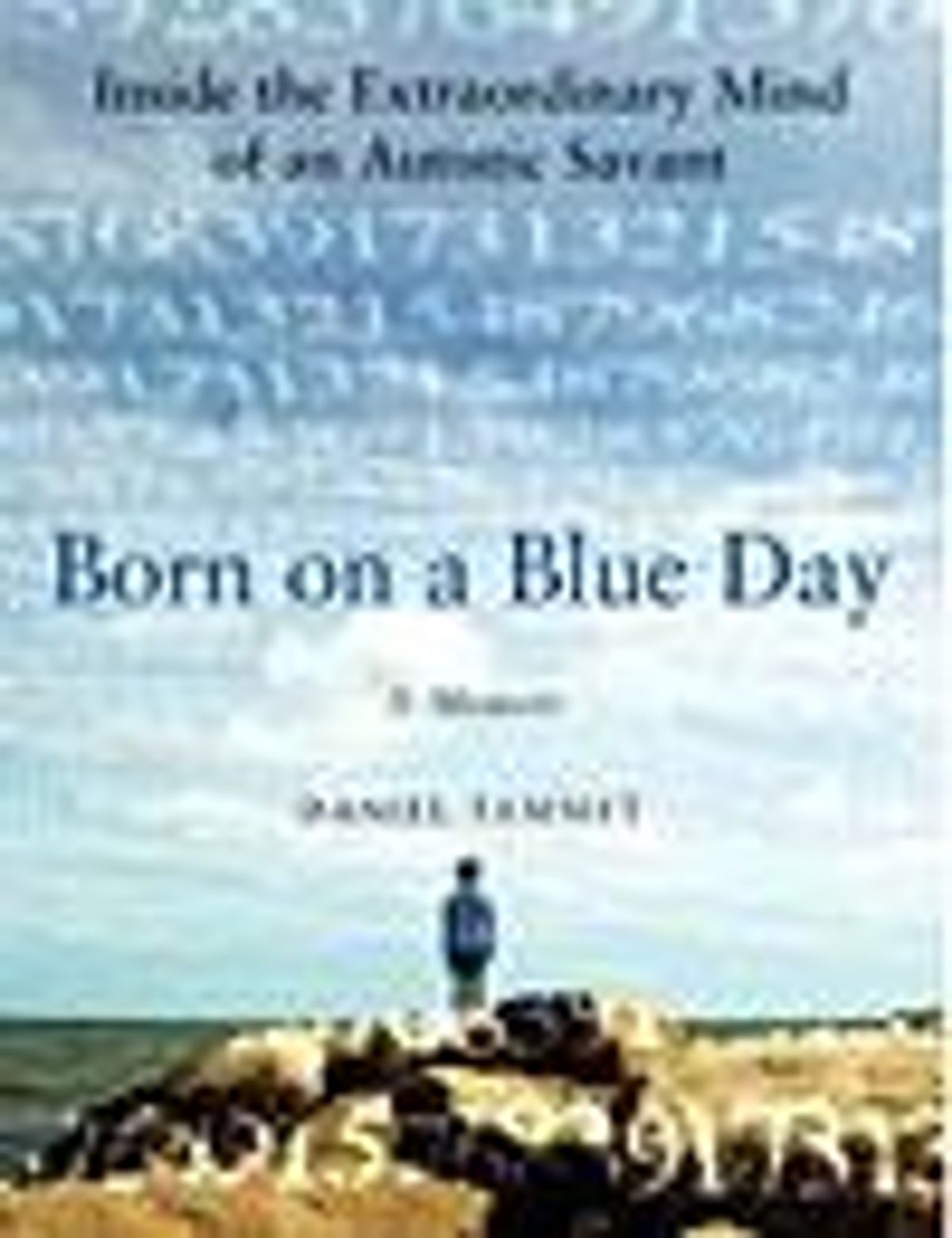
Inside the brain of an autistic savant lies a parallel universe.
May 18 2007 12:00 AM EST
November 17 2015 5:28 AM EST
By continuing to use our site, you agree to our Private Policy and Terms of Use.

Inside the brain of an autistic savant lies a parallel universe.
In the mind of Daniel Tammet, Wednesdays are blue. So is the number 9, which also happens to be tall and to evoke feelings of enormity. He prefers multiplication to any other mathematical calculation, though he can divide a sum to nearly a hundred decimal places almost instantly. His favorite number is 4 because it's both shy and quiet, 89 reminds him of falling snow, and 5 is loud like a thunderclap. The word thunder is orange--as is any word beginning with the letter t--but orange is actually clear and shiny like ice.
Suffice it to say that Daniel Tammet's brain doesn't work like yours.
For one, he's a savant, which by definition means he possesses an extraordinary brilliance or talent coupled with a developmental disorder. Darold Treffert, clinical professor of psychiatry at the University of Wisconsin-Madison Medical School and author of Extraordinary People, explains that there are three levels of savant syndrome: Splinter skills include obsessive preoccupation and memorization of facts and trivia--which suddenly explains that guy we've all met who can list every Beatles song ever written, including track length and album of origin. The talented savant is someone who has an expertise in music, art, or math that's particularly remarkable given his disability. But a prodigious savant, of whom Tammet is one of perhaps 50 in the world, has skills so outstanding that they would be amazing even without the contrast to his handicap.
"Absent the disability, we'd call a prodigious savant a genius," says Treffert, who served as a consultant on the movie Rain Man. "It's a rare condition within an already rare condition."
Tammet's particular developmental disorder is Asperger's syndrome, a mild, high-functioning form of autism. Statistics on how many autistic people live specifically with Asperger's are inexact, but if you consider that more than half a million people in the United Kingdom (where Tammet lives) have some form of autism, his disorder is the one thing about Tammet that isn't so unique. One out of 10 people with an autistic disorder shows some type of heightened talent. People with Asperger's often have normal to high IQs and good language and learning ability. However, like those with other types of autism, they have difficulty with social interactions, insist on routine, and exhibit a tendency for obsessive behavior. For Tammet, that means he weighs his morning cereal to exactly 45 grams and counts every item of clothing he's wearing before leaving the house. Friends popping by without warning can cause a meltdown, as can a trip to a large, crowded supermarket. Actually, if the last two serve as criteria, we might all be a little autistic.
As for his prodigious talents, Tammet can calculate numbers in a blink of an eye. He's recited the number pi to more than 22,500 decimal places from memory. He speaks 10 languages, one of which he learned in a week. It's all remarkable, of course. But it's how he does it that makes Tammet so rare, even amid the extraordinary circle he runs in.
Tammet sees numbers (and, to a certain extent, words) as shapes, colors, textures, movements, even emotions--a condition known as synesthesia. He has a unique visual response to every number up to 10,000. When doing multiplication he sees two distinct shapes spontaneously create a third between them, which he understands as a new number. Multiplying any number by 11 is accompanied by the sensation of numbers tumbling downward in his head. "It's like doing math without having to think," he writes in his memoir, Born on a Blue Day.
Daniel Bor of the Cognition and Brain Sciences Unit of the Medical Research Council in Cambridge, England, along with colleague Jac Billington of Cambridge University's Autism Research Centre, studied Tammet's ability to process sequential numbers and remember them in correct order. Tammet can recall a series of 12 digits, compared to about six for most people. "Daniel's ability to remember numbers and possibly also his ability for calculations, though that's far more of a mystery, are due to a combination of two factors," says Bor. "First, his Asperger's syndrome allows him to concentrate more deeply on one thing and so excel in an area he chooses to obsess over. Second, we think Daniel's very unusual form of synesthesia causes him to convert those numbers into something even more structured and ordered, making it easier to remember."
It's quite beautiful--and oddly enviable--when you think about it. Tammet's autism could have left him detached and isolated, but his unique relationship with numbers provides him with a dynamic community of personalities and intrigues that may actually exceed the experiences of the average person. "Many savants retreat into their rituals and expertise when they're anxious and upset, and to that extent their abilities become a comfort," explains Treffert. "Daniel's experience is richer. It's a place for him to wander and explore; it colors the mind. It's more than just a comfort, it's enrichment."
So, the question remains: Does your brain have the same, albeit dormant, capacity as Tammet's? Yes and no, says Treffert. "We're finding that some hidden potential exists in us all, but we're not all hidden Picassos."
Want more breaking equality news & trending entertainment stories?
Check out our NEW 24/7 streaming service: the Advocate Channel!
Download the Advocate Channel App for your mobile phone and your favorite streaming device!

